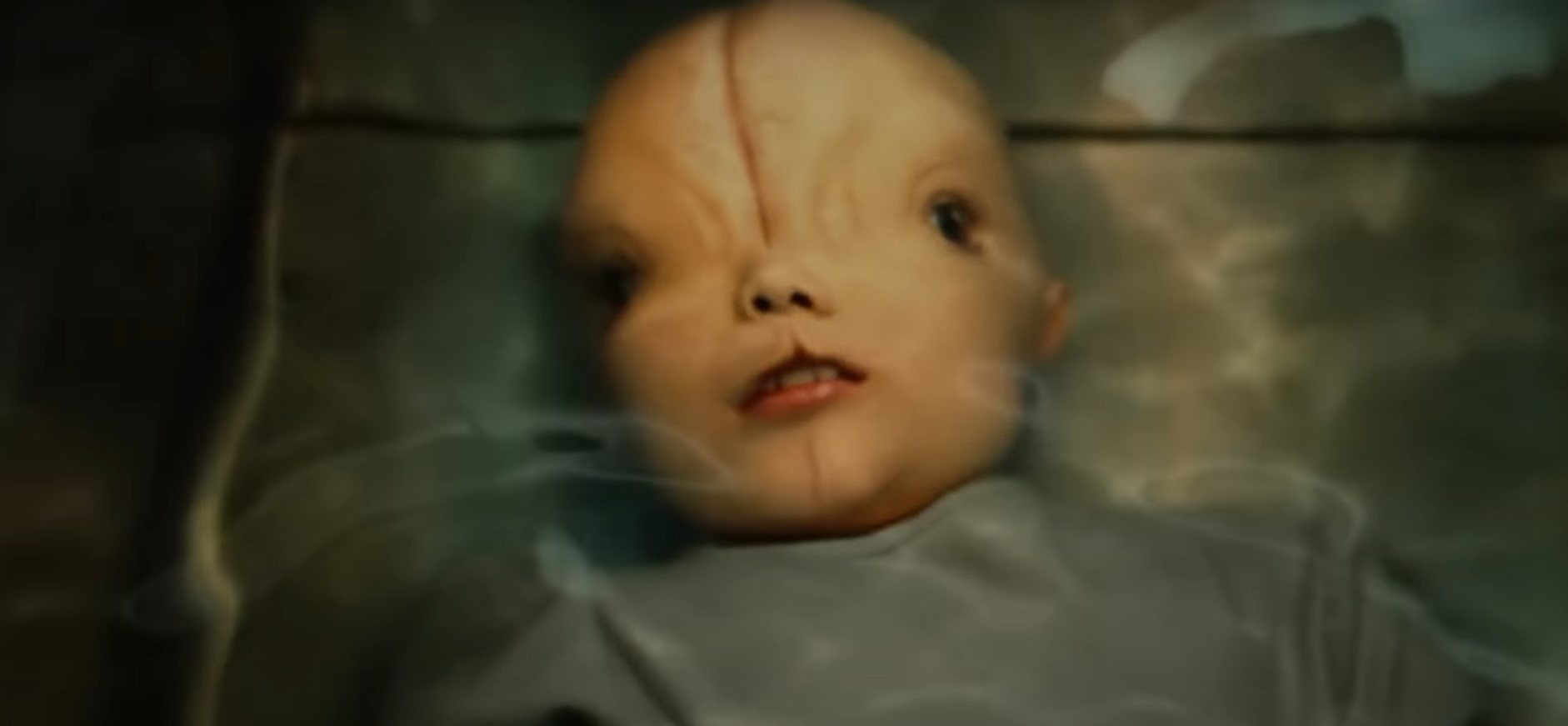Advances in genetic manipulation and biotechnology are opening up new possibilities for pushing human limits, but they also come with warnings that they threaten human identity and could lead to the end of Homo sapiens.
In the movie Splice, Dren is a creature accidentally created by a famous scientist couple while they are advancing genetic recombination technology to develop a protein to treat incurable diseases in humans. The creature has human “emotions,” but its rapid cell division gives it powerful abilities, and later, it kills the couple who created it and becomes increasingly uncontrollable. As science continues to advance, the end of Homo sapiens may indeed be near in the near future.

“Homo sapiens is a primate animal of the human family that stands on two feet and walks. People on Earth are also known collectively as the human race.” Currently, Homo sapiens is in the process of transcending its biologically determined limits. For four billion years, all life on Earth evolved according to the laws of natural selection, but in the 21st century, with the ability to manipulate DNA, Homo sapiens is replacing natural selection with intelligent design. In the past, we had to go through a slow and long process of evolution to adapt to our natural environment, but now science and technology are shortening that process. Humans are gradually breaking away from the framework of “nature” and steering evolution in the direction they want it to go. This change is not just limited to the biological dimension. It raises fundamental questions about human identity, the meaning of existence, and forces us to rethink what we can truly call human.
Biotechnology is one of the methods of intelligent design, which refers to the useful utilization of the characteristics of living organisms through techniques such as genetic recombination and cell fusion. Biotechnology is considered the most likely cause of the end of Homo sapiens. Homo sapiens have a long history of modifying the form, abilities, etc. of living things. For example, humans castrated bulls to make them less aggressive, and then used the less aggressive bulls in the agricultural industry for their own benefit. This process is one example of how humans have long interacted with nature, but 21st-century scientists want to go beyond simply altering the characteristics of living things and create new ones. This is a manifestation of our desire to become creators of life, and it’s a risky endeavor.
In the 21st century, our understanding of the life sciences has grown so much that scientists have developed the ability to implant bovine cartilage into the backs of mice, and in the near future, more sophisticated techniques may allow humans to live forever. In addition to manipulating living organisms, 21st-century genetic engineers want to create creatures that don’t even exist. Researchers are attempting to “resurrect” a mammoth that went extinct five thousand years ago by inserting DNA from a recovered mammoth in Siberia into an elephant. These attempts are more than just scientific curiosities; they are symbolic acts of human dominance over nature. In addition, Harvard University professor George Church is attempting to recreate Neanderthals using Sapiens genes, arguing that this would reveal the origins of Homo sapiens and that Neanderthals had better physical conditions than Homo sapiens, which would make them more useful.

Mary Shelley’s novel ‘Frankenstein’ tells the story of Frankenstein, a man who creates a monster out of his desire to create life, and later loses his family and friends to the monster and dies trying to track it down. Although Frankenstein’s story is fiction, it feels like a warning to Homo sapiens. Humans are increasingly changing their characteristics through biotechnology to satisfy their desires. As science and technology advance, human limits are becoming increasingly blurred. We are changing ourselves in ways we could never have imagined in the past, and this is causing us to fundamentally rethink what it means to be human. As mentioned above, advances in the life sciences allow Homo sapiens to change their characteristics and physical structure. If we can use the technology of biotechnology to use genes from certain organisms to make proteins that are unique to other organisms, and if we can combine genes from different species to create new organisms with characteristics of various species, the boundaries between these new organisms and humans will not be precisely defined, and the “Homo sapiens” created through such genetic modification will no longer be called Homo sapiens.
While genetic engineering in biotechnology can be used to do many more amazing things, experts have raised ethical and political objections. Some argue that “humans shouldn’t invade God’s domain,” while others strongly criticize the suffering of animals in experiments. Consider this. If we create superior genes through genetic manipulation and use them to create superhumans, creatures with truly exceptional abilities, physical conditions, and brilliant brains, our genes will be turned into material things. In this process, people with money will invest heavily to create “smart and beautiful” babies, and the “haves and have-nots” phenomenon will intensify. This development will further deepen social inequality and complicate the structural problems of human society. Nevertheless, due to our uncontrollable desires, such as the desire not to die and the desire to become smarter, we will eventually give up being Homo sapiens and be replaced by new beings.
Will the Homo sapiens reborn through biotechnology be called Homo sapiens? Genetic engineering may allow Homo sapiens to create superhumans. Although political and ethical objections have slowed down the pace of genetic engineering research on humans, human desire will drive genetic engineering to infinity. Through these advances, humans will continue to extend their lifespans, conquer incurable diseases, and develop greater emotional intelligence. But these changes will not be limited to physical and biological changes. They will redefine our social structures, moral standards, and even the meaning of human existence. Like Dren in the movie, Homo sapiens transformed by biotechnology will not be the same Homo sapiens we know today, because they will give up who they are, that is, the intellectual and psychological abilities and bodies that we currently have, and live as new beings.
 I’m a blog writer. I want to write articles that touch people’s hearts. I love Coca-Cola, coffee, reading and traveling. I hope you find happiness through my writing.
I’m a blog writer. I want to write articles that touch people’s hearts. I love Coca-Cola, coffee, reading and traveling. I hope you find happiness through my writing.